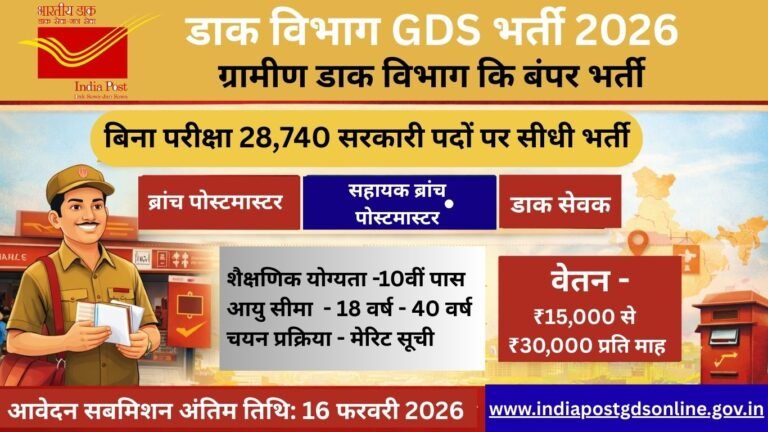The Power of a Sarkari Tag
In India, “Sarkari Naukri” is more than a career aspiration — it’s a cultural phenomenon, a status symbol, and for many families, a multi-generational dream.
From tea stalls in Bihar discussing UPSC cutoffs to WhatsApp groups in Kerala sharing RRB alerts — government job fever grips the nation with a kind of loyalty and intensity unmatched anywhere else in the world.
Despite the startup boom, private sector perks, and remote work culture, lakhs of aspirants continue to prepare for a shot at the bureaucratic badge, banking desk, or railway uniform. But what makes it so magnetic — even today?
Let’s break it down.
Chapter 1: Why Sarkari Naukri Still Reigns Supreme
1. Unshakeable Job Security
In an era of pink slips and performance reviews, government jobs offer lifetime security. Once selected, you’re protected against arbitrary layoffs — especially in central and state-level services.
This safety net is especially crucial for middle- and lower-middle-class families with limited savings.
2. Guaranteed Pension and Perks
While the private sector moved to EPF and NPS, many government jobs still include gratuity, health insurance, housing allowance, and post-retirement pensions.
Benefits include:
- Central Government Health Scheme (CGHS)
- Leave Travel Concession (LTC)
- Subsidized Housing and Ration
3. Work-Life Balance
Most Sarkari jobs have fixed working hours (usually 9 to 5), generous holidays, and maternity/paternity leave. This is a significant draw for young families and women professionals.
4. Social Prestige
In rural India, a “Sarkari naukri” is seen as a badge of honor. Parents of brides/grooms still proudly declare “my son is in the Railways” or “my daughter is in the Income Tax department.”
It’s not just employment — it’s identity.
5. Inclusive & Transparent Selection Process
With reservation policies, standardized exams, and state quotas, these jobs are perceived to offer equal opportunity — especially for SC/ST/OBC and economically weaker candidates.
Chapter 2: Major Government Job Sectors in India
Let’s explore some of the most sought-after sectors and their unique appeal.
Civil Services (UPSC)
Roles: IAS, IPS, IFS, IRS
Seats: ~1,000/year
Appeal: Power, prestige, and policy influence.
Requires: General Studies mastery, essay skills, and optional subject strategy.
Staff Selection Commission (SSC)
Roles: Tax Assistant, CGL, CHSL, MTS
Seats: Thousands
Appeal: Clerical to officer-level roles across ministries.
Requires: English, Quant, Reasoning, General Awareness
Banking Sector (IBPS, SBI)
Roles: Probationary Officer (PO), Clerk, Specialist Officer
Seats: 10,000–15,000 annually
Appeal: Fast promotions, transferable roles, urban lifestyle
Requires: Quant, English, Reasoning, and banking awareness
Railway Recruitment Board (RRB)
Roles: Loco Pilot, NTPC, Group D
Appeal: Pan-India presence, family housing, benefits
Seats: 1–2 lakh in Group D exams
Requires: General science, GK, reasoning, math
Defence Services (NDA, CDS, AFCAT)
Roles: Indian Army, Navy, Air Force
Appeal: Adventure, honor, early promotions
Requires: Physical fitness + aptitude + personality assessment
State Public Service Commissions (PSC)
Roles: SDM, DSP, Tehsildar, State Secretariat roles
Every state holds its own PSC exams.
Appeal: Local language, home postings, tailored governance
Chapter 3: The Preparation Ecosystem
1. Coaching Centers – A Billion-Dollar Industry
Places like Kota, Prayagraj, Mukherjee Nagar (Delhi), and Hyderabad have become Sarkari prep cities, supporting lakhs of aspirants with full-time coaching.
From ₹10,000 crash courses to ₹2 lakh one-year modules — coaching is no longer optional. For many, it’s a way of life.
2. Self-Study and Online Platforms
The digital revolution now supports YouTube educators, app-based mock test platforms, and Telegram groups that rival brick-and-mortar classes.
Top platforms:
- Unacademy, Adda247, Testbook, Byju’s Exam Prep, StudyIQ
3. Book Culture
Every aspirant’s desk has:
- Lucent GK
- R.S. Aggarwal (Quantitative Aptitude)
- NCERT books for GS
- M. Laxmikanth for Polity
- Spectrum for Modern History
Chapter 4: Challenges on the Sarkari Path
1. Limited Seats, Infinite Aspirants
UPSC pass rate: <0.2%
SSC/IBPS: 1–2%
For every seat, hundreds compete — many multiple times over.
2. Economic Burden
Families invest ₹1–3 lakh/year on coaching, accommodation, and books. Often funded through:
- Loans
- Gold mortgage
- Family savings
3. Mental Health Toll
Years of uncertainty, comparison, and fear of failure lead to:
- Anxiety
- Depression
- Suicidal ideation (especially in high-pressure hubs like Kota)
Yet, mental health support remains rare or taboo in most prep cultures.
Chapter 5: How Technology Is Transforming Sarkari Naukri
1. Digital Applications
From UPSC to local police recruitment — almost every application is now online. No brokers, no bias.
2. Online Exams & Mock Tests
Computer-based tests (CBTs) like SSC, RRB, and IBPS are now standard.
Mock tests simulate real exams and track:
- Speed
- Accuracy
- Time management
3. E-Governance & Recruitment Transparency
Portals like:
- ncs.gov.in (National Career Service)
- upsc.gov.in
- ssc.nic.in
have increased transparency, reduced leaks, and improved tracking.
Chapter 6: Inspiring Stories of Real Aspirants
Pradeep Singh, Son of a farmer – IAS 2019 Topper
He studied at home using online lectures, cracked UPSC without formal coaching.
Rani Kumari, Daughter of a tailor – Bihar Police Sub-Inspector
Worked part-time at a store while preparing, cleared exam in third attempt.
Zakir Hussain, Auto driver turned Teacher (via SSC)
Studied at night, taught himself English, and today teaches at a government school.
Chapter 7: Is Sarkari Naukri Right for You?
Ask yourself:
- Can you commit 2–3 years of dedicated study?
- Are you prepared to face failure — possibly multiple times?
- Do you value job stability over flexibility?
- Are you ready for a structured, hierarchical system?
If the answer is yes — then go all in. Because once you clear that one exam, it changes your life and your family’s destiny.
Conclusion: Sarkari Naukri Is More Than a Job
In a country where inequality is rampant, private jobs are volatile, and merit meets red tape — Sarkari Naukri still offers hope.
It’s the dream of the rickshaw puller’s son.
The path to respect for the rural girl.
And for many, it’s the only way out of poverty.
Yes, the competition is brutal.
Yes, the journey is long.
But for those who succeed, it’s not just a career. It’s a life transformed.





